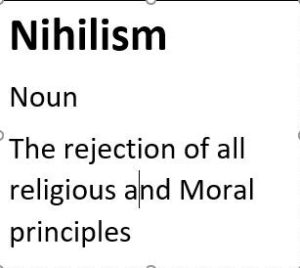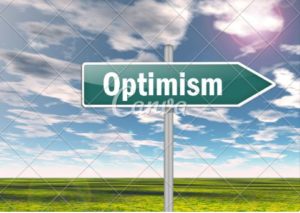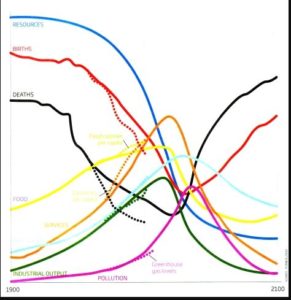 Covid-19 is sweeping the world in the form of a grim reaper, scything the old and chronically ill as it passes. In Memes, Society and Human Evolution I identified eight grim reapers that could setback human progress as we reach the environmental limits that Earth can support: war, revolution, famine, plague, natural disaster, economic malfunction, shortage of raw materials and environmental damage. Plague was conceived as being a less serious threat. I reasoned that, because we now live in such an interconnected world, there is less opportunity for pathogens to develop in isolation and therefore less risk that a virulent pathogen will wipe out large numbers of humans. If a pathogen is too potent it will kill its host before it has the chance to spread. Initially, therefore, a pathogen must allow a fair chance of human survival in order to allow its own propagation. A pathogen which develops over a long time in an isolated community will gradually increase its virulence as the community develops its own immunity. If this pathogen is then released to the world it can be devastating.
Covid-19 is sweeping the world in the form of a grim reaper, scything the old and chronically ill as it passes. In Memes, Society and Human Evolution I identified eight grim reapers that could setback human progress as we reach the environmental limits that Earth can support: war, revolution, famine, plague, natural disaster, economic malfunction, shortage of raw materials and environmental damage. Plague was conceived as being a less serious threat. I reasoned that, because we now live in such an interconnected world, there is less opportunity for pathogens to develop in isolation and therefore less risk that a virulent pathogen will wipe out large numbers of humans. If a pathogen is too potent it will kill its host before it has the chance to spread. Initially, therefore, a pathogen must allow a fair chance of human survival in order to allow its own propagation. A pathogen which develops over a long time in an isolated community will gradually increase its virulence as the community develops its own immunity. If this pathogen is then released to the world it can be devastating.
But today few communities live in seclusion, so a plague, such as the Black Death, which could kill a huge percentage of the population, is highly unlikely. The worst epidemic in modern times is the 1918/9 Spanish flu outbreak; it had a mortality rate between 1 and 6 %, leaving 17 million to 100million dead. Yet Covid-19, even though the likely death rate is much less, threatens to be much more disruptive. What I hadn’t foreseen was that improved medical technology would create a bottleneck to the passage of the disease.
Hospitals have only so many critical care beds equipped with ventilators. In order that their health care systems aren’t overwhelmed, all ‘advanced’ countries have adopted the strategy of limiting human contact in order to prevent the rapid spread of the disease. This could only be achieved by shutting down much of the service sector of the economy. Pubs, restaurants, hotels, airlines, trains, airports, travel firms and sports bodies have all seen their businesses disappear overnight. In the West the service sector is by far the largest part of the economy. As a result, Covid-19’s long term economic effects are likely to be much more significant than the impact on the nation’s health.
We didn’t have ventilators in 1918; the Spanish flu swept through the population but the nation’s economy was only slightly dented. The UK government is talking of a few months to get over the effects of the disease, but this is based on hope rather than any reality. There are about 4000 critical care beds in England. Figures of 250,000 potential deaths have been banded about. If each patient that died spent 4 days in a critical care bed, the disease would have to be delayed for 250 days – almost 9 months – if critical care capacity is not to be exceeded. The economic disruption of such a delay would be catastrophic.
It seems that grim reapers don’t act independently. In this case plague may well lead to economic malfunction if the wrong decisions are taken by our government.

 I was wrong. Images of Australia burning seem to have little effect. You’d think that Australians, in the front line of catastrophic droughts, floods and fires would, by now, be demanding that their government front up to the problem. You’d be wrong. Writing in the Guardian Lenore Taylor reports:
I was wrong. Images of Australia burning seem to have little effect. You’d think that Australians, in the front line of catastrophic droughts, floods and fires would, by now, be demanding that their government front up to the problem. You’d be wrong. Writing in the Guardian Lenore Taylor reports: Tax havens allow the rich and multi-nationals to avoid paying taxes, and crooks and corrupt politicians to hide their ill-gotten gains. They are pernicious regulatory authorities which act against the interests of tax payers everywhere. In any rational world, countries would co-operate to ensure they were not allowed to operate. The fact they exist at all signifies the degree to which the rich and multi-nationals have manage to subvert the democratic process.
Tax havens allow the rich and multi-nationals to avoid paying taxes, and crooks and corrupt politicians to hide their ill-gotten gains. They are pernicious regulatory authorities which act against the interests of tax payers everywhere. In any rational world, countries would co-operate to ensure they were not allowed to operate. The fact they exist at all signifies the degree to which the rich and multi-nationals have manage to subvert the democratic process. Our terms are absurdly short. I held five ministerial jobs in four years. Just as I was completing my 25-year environment plan, I was made a Middle East minister. Just as I was trying to change our aid policy in Syria, I was made the Africa minister. Just as I was finishing my Africa strategy, I was moved to prisons. I promised to reduce violence in prisons in 12 months, and violence was just beginning to come down – when I was made secretary of state for international development. How can this be a serious way to run a country?
Our terms are absurdly short. I held five ministerial jobs in four years. Just as I was completing my 25-year environment plan, I was made a Middle East minister. Just as I was trying to change our aid policy in Syria, I was made the Africa minister. Just as I was finishing my Africa strategy, I was moved to prisons. I promised to reduce violence in prisons in 12 months, and violence was just beginning to come down – when I was made secretary of state for international development. How can this be a serious way to run a country? Greta Thunberg’s speech to the UN summarised perfectly our moral duty to preserve the planet for future generations.
Greta Thunberg’s speech to the UN summarised perfectly our moral duty to preserve the planet for future generations. Now that the effects of global warming are becoming apparent to all but the most diehard climate change deniers, we have to come up with a word that describes people who refuse to countenance any change to their lifestyle knowing full well the consequences of their actions. Gaby Hinsliff writing in the Guardian suggests the term climate nihilists.
Now that the effects of global warming are becoming apparent to all but the most diehard climate change deniers, we have to come up with a word that describes people who refuse to countenance any change to their lifestyle knowing full well the consequences of their actions. Gaby Hinsliff writing in the Guardian suggests the term climate nihilists. Local democracy is in deep crisis. Starved of funds by central government, but still with the same legal responsibilities, it is struggling to cope with the many problems laid at its door. Disconnected with its electorate (only a third of people vote in local elections), it is failing to provide adequate leadership. Council services are failing across the country. How have we got in this mess?
Local democracy is in deep crisis. Starved of funds by central government, but still with the same legal responsibilities, it is struggling to cope with the many problems laid at its door. Disconnected with its electorate (only a third of people vote in local elections), it is failing to provide adequate leadership. Council services are failing across the country. How have we got in this mess? Boris Johnson’s recipe for the future of the UK is clearly based on energy and optimism. The belief that if you think something will happen, put aside negative thoughts and stride forward with enthusiasm, you will succeed. However, if the direction is wrong and there is not sufficient analysis and forethought, it is also a recipe for disaster. A splendid piece by Tim Lott in the Guardian warns of the dangers ahead.
Boris Johnson’s recipe for the future of the UK is clearly based on energy and optimism. The belief that if you think something will happen, put aside negative thoughts and stride forward with enthusiasm, you will succeed. However, if the direction is wrong and there is not sufficient analysis and forethought, it is also a recipe for disaster. A splendid piece by Tim Lott in the Guardian warns of the dangers ahead. According to evolutionary theory, every animal species increases in population until it reaches its environmental limit. It appears that the human species will reach its limit in the twenty first century. The negative effects of climate change and pollution on human activity are well known. The UN commissioned report on biodiversity, published this week, reminds us of the dangers due to the loss of wild nature. We humans are destroying the eco-systems that support us, both in the oceans and rivers, and in the forests and savannahs. Despite the extra intelligence and ability of our human species, we are proving to be just another dumb animal pursuing our own self-interest irrespective of the long-term results.
According to evolutionary theory, every animal species increases in population until it reaches its environmental limit. It appears that the human species will reach its limit in the twenty first century. The negative effects of climate change and pollution on human activity are well known. The UN commissioned report on biodiversity, published this week, reminds us of the dangers due to the loss of wild nature. We humans are destroying the eco-systems that support us, both in the oceans and rivers, and in the forests and savannahs. Despite the extra intelligence and ability of our human species, we are proving to be just another dumb animal pursuing our own self-interest irrespective of the long-term results. Good news! There is a way of preserving the soil and maintaining food supply; it’s called conservation agriculture and it’s a growing movement that was developed by farmers themselves.
Good news! There is a way of preserving the soil and maintaining food supply; it’s called conservation agriculture and it’s a growing movement that was developed by farmers themselves.